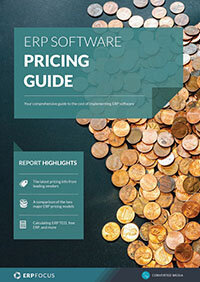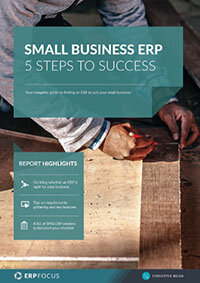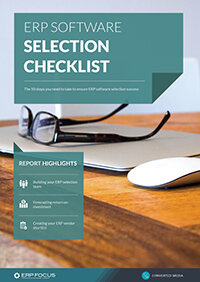Generalized or niche ERP: which one suits you?
Your manufacturing business is unique. There is none other in the world that use the processes you use. Your competitive differentiation is truly individual. So the manufacturing ERP you select must be as unique as you are – right?
Compare all of the hundreds of available ERP systems. Read their ads carefully. If you find one that seems to be a perfect fit, keep comparing. Your selection is one you will need to live with for many years to come.
A niche-focused ERP provider will speak using your vocabulary. The screens they use will continue that language. At first, this will seem like a sure winner. But the most generic ERP provider today can show you how to easily change those screens yourself to use the same field labels. Here are some things to consider
Niche vs generalized ERPs: main points
A niche ERP will have strengths. The flow in the software might match exactly the flow in your business. On the other hand, a less-focused manufacturing ERP has been proven to work well in a wide variety of businesses and very likely can work in yours too.
Recommended reading: both niche and general features explained in our extensive ERP feature glossary.
A niche-focused ERP should not need any customization because, in theory, it is designed for a business just like yours. Maybe it is a perfect fit on day one, but will your business evolve? Of course it will and the need for customization can still arise. That less-focused ERP might be a better bet over time as there many available customizations, while the smaller, niche ERP might have fewer available. If you’re looking at significant growth over the next five years you might find that software that seemed a perfect fit a couple of years back is now redundant.
Cost
A niche-focused ERP could be cheaper. If the developer kept it focused on a very specific industry, the system will not have options included to accommodate a wide variety of users and its programming will be simpler. Keep in mind that the initial cost is only one factor in the total cost of ownership, such as training, data conversion and customization.
Technology
Niche-focused ERPs sometimes use older technology. Many niche ERPs are very competitive. Others could have been developed by someone who was in your business a while back and still sells software they developed a long time ago. While it can work well, consider the support available - is it easy to get the support you need if the database is one from the 1980s? A broad sector manufacturing ERP is more likely to use modern technology and they are more likely to keep their technology up-to-date over time.
Replacement
A niche-focused ERP might be easier to replace. You will certainly change some processes to fit the ERP. Since the niche ERP is specific for your business model right now, there could be fewer processes to change again with a different ERP. Someday in the future it could be very difficult to change away from the big-name broad-sector ERP you select today.
There is no simple answer. Understand what needs you want to fill with the manufacturing ERP and select a system that meets all of the critical needs and as many as possible of your additional needs.
Free white paper

70 features to look for in your next ERP
A comprehensive guide to help you identify requirements for your ERP selection

Featured white papers
-

ERP Software Pricing Guide
Get the latest pricing information on over 80 popular ERP systems, and learn how to budget for your ERP project in our free guide
Download -

Small business ERP: five steps to success
Download -

60-Step ERP Selection Checklist
Get the comprehensive checklist for your ERP selection project
Download
Related articles
-

The best ERP systems for process manufacturing
Consider these ERP systems when selecting your next process manufacturing ERP
-

Secret KPI: Why Your ERP Implementation Team Matters More Than Software
Learn how Godlan ensures successful ERP implementation for manufacturers with proven strategies &...
-

5 ERP pricing definitions you need to understand
Have you mastered the ERP pricing lexicon yet? Getting to grips with these five definitions is a ...

